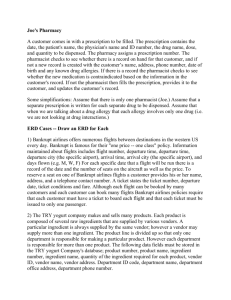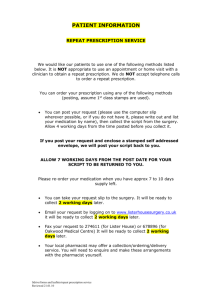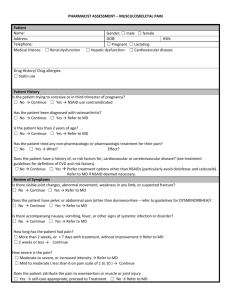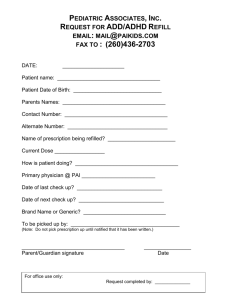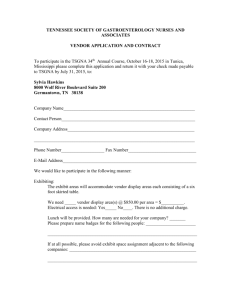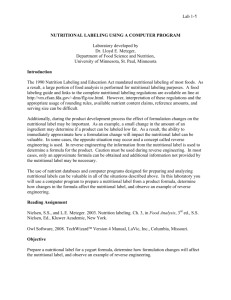ERD Cases -- Draw an ERD for Each
advertisement
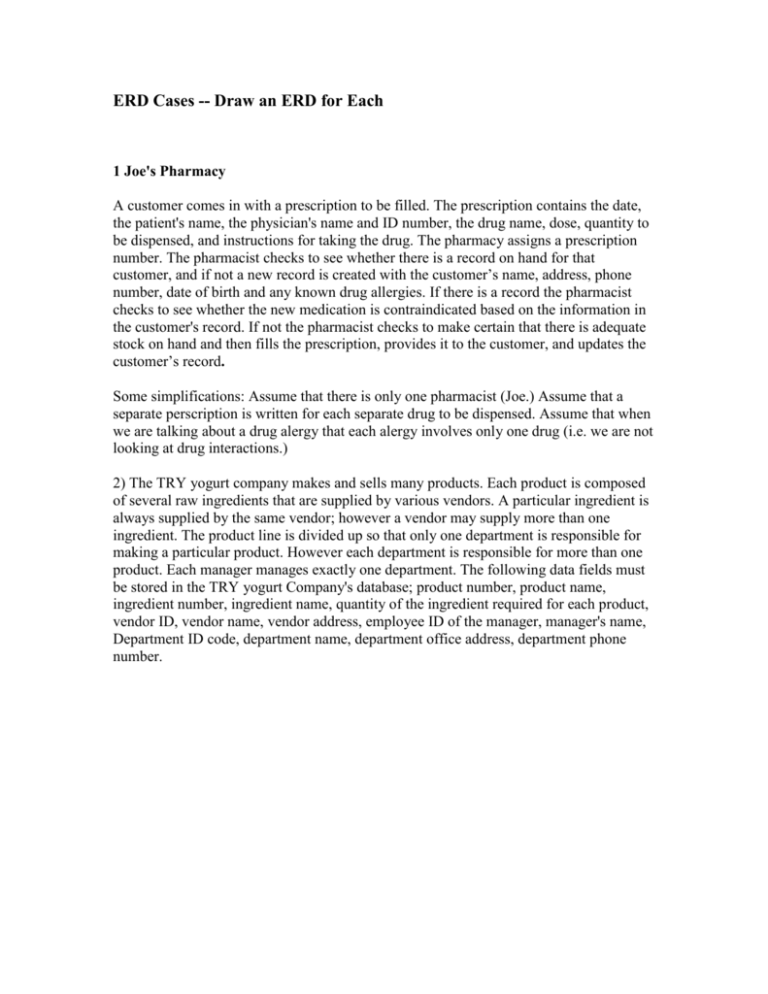
ERD Cases -- Draw an ERD for Each 1 Joe's Pharmacy A customer comes in with a prescription to be filled. The prescription contains the date, the patient's name, the physician's name and ID number, the drug name, dose, quantity to be dispensed, and instructions for taking the drug. The pharmacy assigns a prescription number. The pharmacist checks to see whether there is a record on hand for that customer, and if not a new record is created with the customer’s name, address, phone number, date of birth and any known drug allergies. If there is a record the pharmacist checks to see whether the new medication is contraindicated based on the information in the customer's record. If not the pharmacist checks to make certain that there is adequate stock on hand and then fills the prescription, provides it to the customer, and updates the customer’s record. Some simplifications: Assume that there is only one pharmacist (Joe.) Assume that a separate perscription is written for each separate drug to be dispensed. Assume that when we are talking about a drug alergy that each alergy involves only one drug (i.e. we are not looking at drug interactions.) 2) The TRY yogurt company makes and sells many products. Each product is composed of several raw ingredients that are supplied by various vendors. A particular ingredient is always supplied by the same vendor; however a vendor may supply more than one ingredient. The product line is divided up so that only one department is responsible for making a particular product. However each department is responsible for more than one product. Each manager manages exactly one department. The following data fields must be stored in the TRY yogurt Company's database; product number, product name, ingredient number, ingredient name, quantity of the ingredient required for each product, vendor ID, vendor name, vendor address, employee ID of the manager, manager's name, Department ID code, department name, department office address, department phone number.
